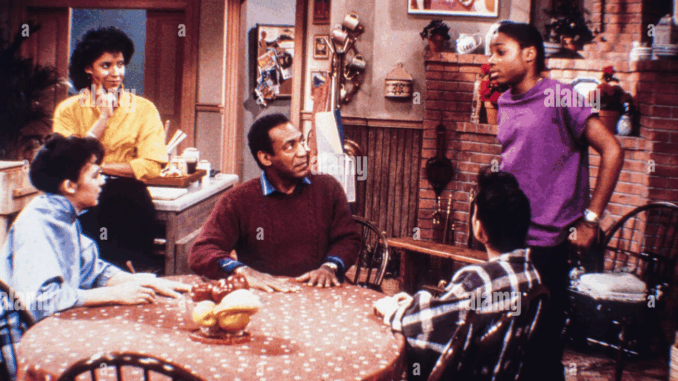
Few television shows have left as lasting an impression on American culture as The Cosby Show. Premiering in 1984 and running for eight seasons, this iconic sitcom not only dominated ratings but also reshaped how Black families were portrayed on TV. Despite the controversy surrounding its star in later years, the show’s cultural impact remains a significant chapter in television history.
A Revolutionary Portrayal of African-American Life
Before The Cosby Show, representations of African-American families on television were often limited, stereotypical, or secondary. The Huxtables broke that mold. Led by Dr. Heathcliff Huxtable, an affable and wise obstetrician, and his wife Clair, a sharp and successful lawyer, the family showcased a vision of Black excellence that was rarely seen on mainstream media.
Set in Brooklyn, New York, the show followed the day-to-day lives of the Huxtables and their five children. Its storylines were relatable, filled with humor, and often touched on meaningful issues—ranging from adolescence and education to integrity and cultural pride.
Cultural and Social Impact
At its peak, The Cosby Show was a ratings juggernaut, consistently ranking No. 1 in Nielsen ratings for five consecutive seasons. But more importantly, it changed perceptions. It demonstrated to millions of viewers that Black families could be successful, loving, and complex—shattering many preconceived notions.
The show also opened doors for other African-American-led series, paving the way for later hits like The Fresh Prince of Bel-Air, Family Matters, and Black-ish.
Legacy Amid Controversy
In recent years, The Cosby Show has been reevaluated due to sexual assault allegations and subsequent convictions involving its creator and lead actor, Bill Cosby. Networks pulled reruns, and many fans were left conflicted—grappling with the separation (or lack thereof) between artist and art.
Still, cultural critics acknowledge the show’s groundbreaking contributions to television history. The writing, performances, and positive messaging remain a high watermark in sitcom storytelling.
Conclusion
The Cosby Show is a complex legacy. While its creator’s actions have clouded its reputation, the show itself remains a powerful reminder of television’s ability to inspire, challenge stereotypes, and reflect the richness of real family life. For many, the Huxtables will always represent a pivotal moment in media history—one that helped transform how stories are told and whose stories are seen.